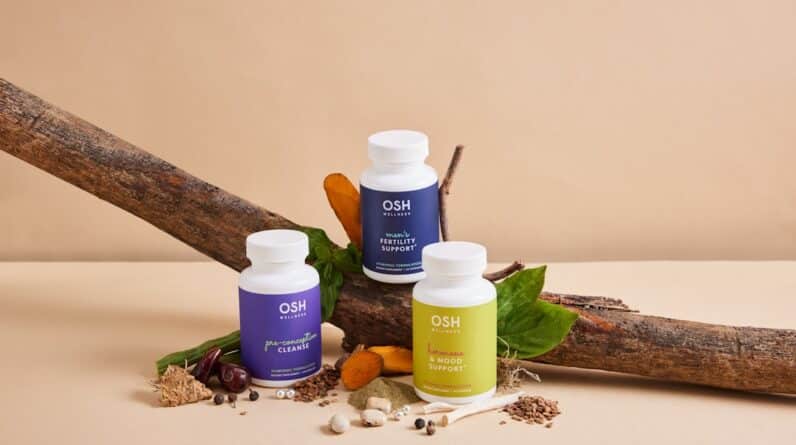Lycopene is a powerful antioxidant that belongs to the carotenoid family, which is responsible for the vibrant red and pink hues found in various fruits and vegetables. You may have encountered lycopene most commonly in tomatoes, but it is also present in other foods such as watermelon, pink grapefruit, and guava. This pigment not only contributes to the appealing colors of these foods but also plays a significant role in their health benefits.
Lycopene is fat-soluble, meaning it is best absorbed when consumed with a small amount of fat, which can enhance its bioavailability in your body. The discovery of lycopene dates back to the 19th century, but it has gained considerable attention in recent years due to its potential health-promoting properties. As a natural compound, lycopene has been studied extensively for its role in reducing oxidative stress and inflammation in the body.
This makes it an essential component of a balanced diet, especially as you seek to improve your overall health and well-being. Understanding what lycopene is and how it functions can empower you to make informed dietary choices that support your health goals.
Key Takeaways
- Lycopene is a natural pigment that gives certain fruits and vegetables their red color and is a powerful antioxidant.
- Health benefits of lycopene include reducing the risk of certain types of cancer, improving heart health, and protecting the skin from UV damage.
- Food sources of lycopene include tomatoes, watermelon, pink grapefruit, and papaya.
- Lycopene can be taken as a health supplement in the form of capsules or tablets.
- Potential side effects of lycopene include digestive issues and allergic reactions, but these are rare.
Health Benefits of Lycopene
The health benefits of lycopene are numerous and varied, making it a valuable addition to your diet. One of the most well-documented advantages is its potential role in reducing the risk of chronic diseases, particularly certain types of cancer. Research has shown that individuals who consume higher amounts of lycopene-rich foods may have a lower risk of developing prostate cancer, as well as other cancers such as lung and stomach cancer.
This protective effect is attributed to lycopene’s ability to neutralize free radicals and reduce oxidative damage to cells. In addition to its anti-cancer properties, lycopene has been linked to heart health. Studies suggest that this antioxidant may help lower LDL cholesterol levels and improve overall cardiovascular function.
By reducing inflammation and oxidative stress within the cardiovascular system, lycopene can contribute to better blood flow and a lower risk of heart disease. As you consider ways to enhance your heart health, incorporating lycopene into your diet could be a simple yet effective strategy.
Food Sources of Lycopene

When it comes to food sources of lycopene, tomatoes are undoubtedly the star of the show. Whether you enjoy them fresh in salads, cooked in sauces, or blended into soups, tomatoes are an excellent way to boost your lycopene intake. Interestingly, cooking tomatoes can actually increase the bioavailability of lycopene, making it easier for your body to absorb this beneficial compound.
So, if you’re looking for a delicious way to enhance your diet, consider adding more tomato-based dishes to your meals. Beyond tomatoes, there are several other fruits and vegetables that can help you increase your lycopene consumption. Watermelon is another fantastic source, providing a refreshing option during hot summer months.
Pink grapefruit and guava also contain significant amounts of lycopene, allowing you to diversify your intake while enjoying different flavors. By incorporating a variety of these foods into your diet, you can ensure that you’re reaping the full benefits of this powerful antioxidant.
Lycopene as a Health Supplement
| Health Benefit | Details |
|---|---|
| Antioxidant properties | Helps protect cells from damage |
| Heart health | May reduce the risk of heart disease |
| Cancer prevention | May lower the risk of certain types of cancer |
| Skin health | May protect against sun damage and improve skin texture |
While obtaining nutrients from whole foods is always recommended, you might find yourself considering lycopene supplements as an alternative or complementary option. These supplements are available in various forms, including capsules and soft gels, making them convenient for those with busy lifestyles or specific dietary restrictions. If you struggle to consume enough lycopene-rich foods daily, supplements can help bridge that gap and ensure you receive adequate amounts of this beneficial compound.
However, before starting any supplement regimen, it’s essential to consult with a healthcare professional. They can help you determine whether a lycopene supplement is appropriate for your individual needs and health goals. Additionally, they can guide you on the best brands and dosages to consider.
While supplements can be beneficial, they should not replace a balanced diet rich in whole foods that provide a wide array of nutrients necessary for optimal health.
Potential Side Effects of Lycopene
Although lycopene is generally considered safe for most people when consumed through food sources or supplements, it’s important to be aware of potential side effects. Some individuals may experience gastrointestinal discomfort, such as bloating or diarrhea, particularly when taking high doses of lycopene supplements. If you notice any adverse reactions after increasing your lycopene intake, it may be wise to reduce the amount or consult with a healthcare professional for guidance.
Another consideration is the interaction between lycopene and certain medications. While research on this topic is still ongoing, some studies suggest that high doses of lycopene may affect how certain drugs are metabolized in the body. If you are currently taking medication or have underlying health conditions, discussing your lycopene intake with your healthcare provider can help ensure that you avoid any potential complications.
Recommended Dosage of Lycopene

Lycopene Intake through Food Sources
While there is no established daily recommended intake for lycopene specifically, many studies suggest that consuming around 6-15 mg per day may provide health benefits. This amount can typically be achieved through a diet rich in tomatoes and other lycopene-containing foods.
Supplementation Guidelines
If you opt for supplements instead of food sources, it’s crucial to follow the manufacturer’s guidelines or consult with a healthcare professional for personalized recommendations. They can help you assess your dietary intake and determine whether supplementation is necessary or beneficial for your specific situation.
Importance of Moderation
Remember that moderation is key; excessive consumption of any supplement can lead to unwanted side effects. It is essential to strike a balance and avoid overconsumption to reap the benefits of lycopene while minimizing potential risks.
Lycopene and Heart Health
Lycopene’s connection to heart health is one of its most compelling attributes. Research indicates that this antioxidant may help lower blood pressure and improve overall cardiovascular function by reducing inflammation and oxidative stress within blood vessels. By promoting better blood flow and reducing the risk of arterial plaque buildup, lycopene can play a vital role in maintaining heart health as you age.
Incorporating lycopene-rich foods into your diet can be an effective strategy for supporting cardiovascular wellness. For instance, enjoying a hearty tomato-based pasta dish or snacking on watermelon can provide not only delicious flavors but also essential nutrients that contribute to heart health. As you prioritize your well-being, consider making heart-healthy choices that include ample amounts of lycopene-rich foods.
Incorporating Lycopene into Your Daily Routine
Integrating lycopene into your daily routine doesn’t have to be complicated; it can be as simple as making small adjustments to your meals and snacks. Start by adding fresh tomatoes or tomato-based sauces to your favorite dishes—think pasta, salads, or even omelets. You might also enjoy snacking on slices of watermelon or incorporating pink grapefruit into your breakfast routine for a refreshing start to your day.
Experimenting with different recipes can also help you discover new ways to enjoy lycopene-rich foods. Consider blending tomatoes into smoothies or soups for added nutrition without sacrificing flavor. You could even try roasting vegetables like bell peppers or carrots with olive oil to enhance their natural sweetness while boosting their nutritional profile.
By being creative in the kitchen and exploring various culinary options, you can easily incorporate more lycopene into your daily life while enjoying delicious meals along the way. In conclusion, understanding what lycopene is and how it benefits your health can empower you to make informed dietary choices that support your overall well-being. From its potential cancer-fighting properties to its positive impact on heart health, incorporating this powerful antioxidant into your diet can be both enjoyable and beneficial.
Whether through food sources or supplements, finding ways to include lycopene in your daily routine will help you take proactive steps toward a healthier lifestyle.
When considering taking a lycopene health supplement, it is important to take into account various factors before making a decision. Factors such as dosage, potential side effects, and interactions with other medications should all be considered. For more information on factors to consider before taking supplements, check out this informative article here. Additionally, lycopene supplements can also benefit skin, hair, and nail health. To learn more about supplements for skin, hair, and nail health, you can read this article here. Understanding the importance of nutrition is also crucial when considering adding supplements to your diet. To explore three reasons why nutrition is important, check out this article here.
FAQs
What is lycopene?
Lycopene is a naturally occurring chemical that gives fruits and vegetables their red color. It is a powerful antioxidant that helps protect cells from damage.
What are the sources of lycopene?
Lycopene is found in high amounts in tomatoes, watermelon, pink grapefruit, and other red or pink fruits and vegetables.
What are the potential health benefits of lycopene?
Lycopene has been studied for its potential role in reducing the risk of certain types of cancer, heart disease, and age-related eye disorders. It may also have benefits for skin health and sun protection.
What is a lycopene health supplement?
A lycopene health supplement is a product that contains a concentrated form of lycopene, often derived from tomatoes or other natural sources. It is available in various forms such as capsules, softgels, and gummies.
Are there any potential side effects of lycopene supplements?
Lycopene supplements are generally considered safe for most people when taken in appropriate doses. However, high doses may cause digestive issues such as diarrhea or nausea.
Can lycopene supplements replace a healthy diet?
Lycopene supplements should not be used as a replacement for a healthy and balanced diet. It is always best to obtain nutrients from whole foods whenever possible.
How should lycopene supplements be taken?
Lycopene supplements should be taken according to the manufacturer’s instructions. It is important to follow the recommended dosage and consult a healthcare professional if you have any underlying health conditions or are taking medications.






